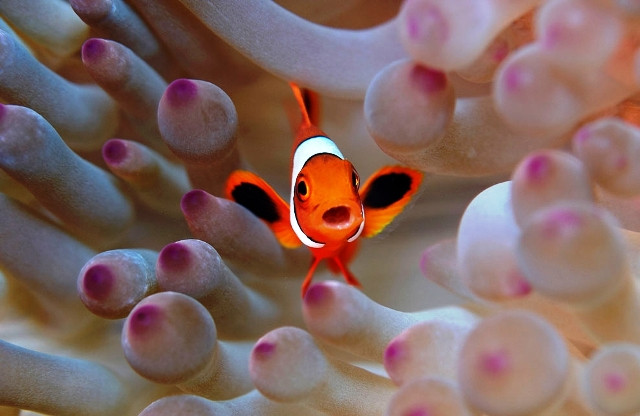People, who are passionate about keeping fish as pets lose heart in the hobby, as fish get infections easily or die unexpectedly. Many times, this happens because the aquarium is not well maintained. So an unclean aquarium leads to an unhappy fish, or sometimes dead ones.
Fish keeping is like taking care of children; one needs to give them love and care, and be patient with them. Here are a few economical and easy fish keeping tips for all fish lovers out there:
1. Get an aquarium
The first dilemma faced by fish keepers is the choice between a fish bowl and an aquarium. I believe aquariums are better. They can be small in size, but with aquariums, the oxygen and filtration equipment are easier to use. If you feel that ready-made aquariums are expensive, then you can ask a local glass shop to make you one, by joining glass slabs together with silicon and letting it stand for some time. Once the basic structure of your aquarium is ready, you can get filtration and oxygen pipes attached to it, along with a few ornaments, fake plants and a battery to run the system, from any local aquarium shop.
2. Buy the fish and introduce them to their new habitat
Once you fill the aquarium with lukewarm water, you need to put one drop per litre of anti-chlorine medicine, which is easily available at any pharmacy. Try not to buy expensive species of fish if it’s your first time because chances are, the fish might die while adjusting to the aquarium’s surrounding.
The safest bet for beginners is to go either with the ‘Molly’ or the Gold Fish for their first time. Do not over stock the aquarium. Keep a margin of one fish for every 20 litres of water in your aquarium. This is for those fish that are no longer than about two inches each. For larger fish, different measurements will be used.
When you buy the fish, you get them in a water filled plastic bag from the shop. Put this bag, as it is, in the aquarium you have prepared for at least 30 minutes so that the fish can adjust to the temperature of the aquarium. Once this is done, release the fish into the aquarium, along with the water present in the plastic bag.
3. Homemade fish food
The hard granule fish food sold in shops is useless and your fish will eventually come to hate it if you keep feeding them just that. Like us, fish too like diversity in their food. So here is an easy recipe to make fish food at home.
Ingredients
Gelatine: as required
Lettuce or green peas or carrot (mashed): a little bit
Some fish food granules: crushed
Some dried blood-worms or the regular frozen dead mud worms: crushed
Method:
Mix all the ingredients and cook them with water. Quantities will vary according to how much food is required. Put gelatine and allow the concoction to cool a bit. Get a redundant, covered ice tray and pour the mixture into the tray. Freeze the mixture.
4. Fish feeding schedule
One of the main causes of death in fish is over feeding. So keep a scheduled diet for your fish and feed them only once a day.
Your fish feeding schedule for the week should be something like this,
Day one: homemade fish food
Day two: homemade fish food
Day three: a slice of cucumber for the fish to nibble on
Day four: homemade fish food
Day five: one regular pea, lightly boiled, mashed and crushed
Day six: homemade fish food
Day seven: a few tomato or lettuce or cabbage pieces for the fish to nibble on
Fish usually do not have a taste for fruits, so stick to vegetables.
5. The trick to cleaning and changing the water in your aquarium
After every third day, change 1/3 of the aquarium water and refill it with fresh tap water.
After every third week, change 3/4 of the water again and replace it with lukewarm, fresh tap water.
This process will keep the oxygen circulating, all the while ensuring that the healthy bacteria in your aquarium are not washed out completely. While changing water, clean the walls of the aquarium with a sponge. Clean it only with water, never use any detergent.
These are some tried and tested tips that have seemed to work in providing me with some extra time with my fish. Hope they are useful in helping your fish survive longer too.
Here’s to happy and healthy fish keeping!
You have fish but they keep dying? Here are 5 tricks to make sure your fish have longer lives!
Your fish keep dying because the aquarium you have isn't managed and maintained well. Here is how you do it.



COMMENTS
Comments are moderated and generally will be posted if they are on-topic and not abusive.
For more information, please see our Comments FAQ